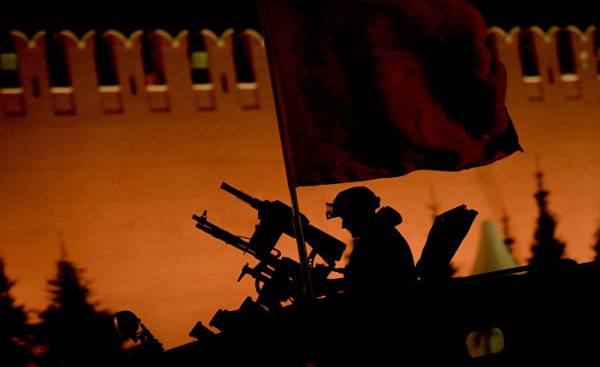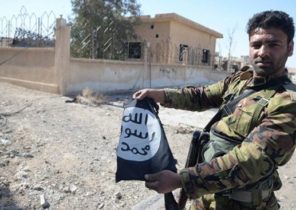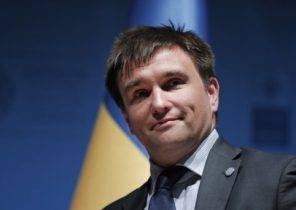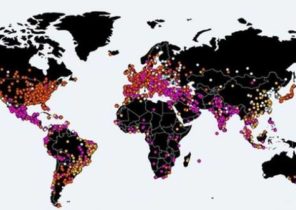
In the 1930-ies in Finland there was an organization called Karelian academic society. It was a-wing group that dreamed about a greater Finland beyond the borders of the Soviet Union.
The main ideology meant an aversion to all things Russian, which is reflected in their programmatic article:
“We must learn ourselves and teach others to hate Russians so deeply and strongly that the roots of this hatred did not disappear after death. Let’s remove the name devil from our curses and paste them instead of this “Russian””.
That is, it was about this deep and irrational contempt towards other people. As an ideology this attitude can almost be equated to anti-Semitism and “hatred” is the right word in this context.
According to the subtitle of the Swedish edition of the book, guy Mettan (Guy Mettan) talks about “Russophobia from Charles the Great to Barack Obama.”
In the French original the us President is not mentioned, instead, refers to the crisis in Ukraine, which focused on modern anti-Russian sentiment. The word “hate” is also missing in the header.
Selection of words for Swedish edition might scare away those who just need to perceive the main message of the book. In fact, the author wants to talk about hate. He rather wants to show how Western politicians and the media use double standards, condemns the motives and actions of Russia, while other countries and governments that commit much worse crimes against the law and human rights remain unaddressed. We are talking about phobias, without any reasonable grounds.
Guy mettan, a Swiss journalist, and he passed on the history of the fear of Russian in countries such as France, Germany and the UK. Examples from Sweden it takes. But his thesis is easy to illustrate here, if you look at the program of visits of the Prime Minister Stephen Leuven (Stefan Löfven).
In March 2015, he went to China, a powerful state where executed more people than all other countries combined. This country has decades of occupying Tibet. In October 2016 Leven met chop off the heads of the king of Saudi Arabia, whose repressive regime is still waging a barbaric war in Yemen.
But if he decided to visit Russia, a big and important country-neighbor, we know that editorials in many Newspapers simply would have exploded. Some of the staff of the Institute of international relations would be scared to hiccups. The fact that he, like President Niinistö of Finland (Sauli Niinistö), may invite Putin to talk, it seems inconceivable in our political climate. And for example in Finland we have much to learn in terms of conducting a critical dialogue with authoritarian neighbor, talks between the two Nations, in which it is possible to consistently defend its democratic values.
Uppsala Professor Rolf Torstendahl (Rolf Torstendahl) a few years ago wrote about the unfathomable Russophobia prevailing in the Swedish General public. At the same time, his recently deceased colleague, the historian Alexander Kan (Aleksander Kan) mentioned that the Swedes often believe that Russia was for centuries constantly attacked us, while in fact it was quite the opposite. Swedish aggression persists in Russian historical memory. Russian are our true enemy, that is, of course, the fact that we, for centuries, fought over trade routes and political influence on the Baltic sea and on lake Ladoga.
He Mattan wants to explain centuries of Russophobia old religious schism between East and West, from Charlemagne and later. He mentions the dogmatic disputes that have widened the gap between Rome and Constantinople.
As a historian of Church ideology, he still must be said, goes into too deep water. The contradictions between Orthodoxy and Catholicism do not explain everything. Countries that are affected by Byzantium, such as Greece and Romania, have seldom been the objects of hatred of the West, perhaps because they are in for a long period been occupied and powerless.
Exactly what Russia is a strong state with economic and military resources identified special attitude. Add to that the pressure which first tsarist Russia and then the Soviet Union had on its neighbors.
Of course, Mattan rights, stating that anything that doesn’t coincide with the interests of Russia, becomes a very sensitive issue in Western propaganda. Protest against the annexation of Crimea and Russian support for the rebels in the East of Ukraine will unite a majority.
But few of the journalists in the prevailing climate discussion now dare to remind that Ukraine is in some respects is further away from Western values than today’s Hungary. When reabilitarea murderers of Jews and poles and when the modern hatred of the Russian cultivated with the help of government (and entirely Western) historical revisionism, it is difficult to expect that the Eastern part of the country come to join this journey.
Without going into detail in all of the examples Mattana about double standards, it is possible, generalizing, to say that his book is certainly one-sided. The way it happens when you seek to refute another one-sidedness. More calm and extensive analysis of the different cases raised in the book, would have made it more convincing.
But the main point, the concern of the Swedes, should be clear: if we can humbly continue the dialogue with the U.S., despite their illegal and disastrous invasion of Iraq, we should also be able to critically talk with another major power, despite its crimes against international law.
Because now itself Swedish foreign policy is formed not on the basis of considerations of logic and of the commercial and military interests. We’ve lived with the legacy of Sven Hedin (Sven Hedin) and military fanatics the beginning of the XX century. Today is not the Ministry of foreign Affairs manages the Swedish foreign policy against Russia, but defence Minister Peter Hultqvist (Peter Hultqvist) and a crowd of his defense of activists and “reporters on issues of political security”. Book Mattana give this circumstance to a certain term.







